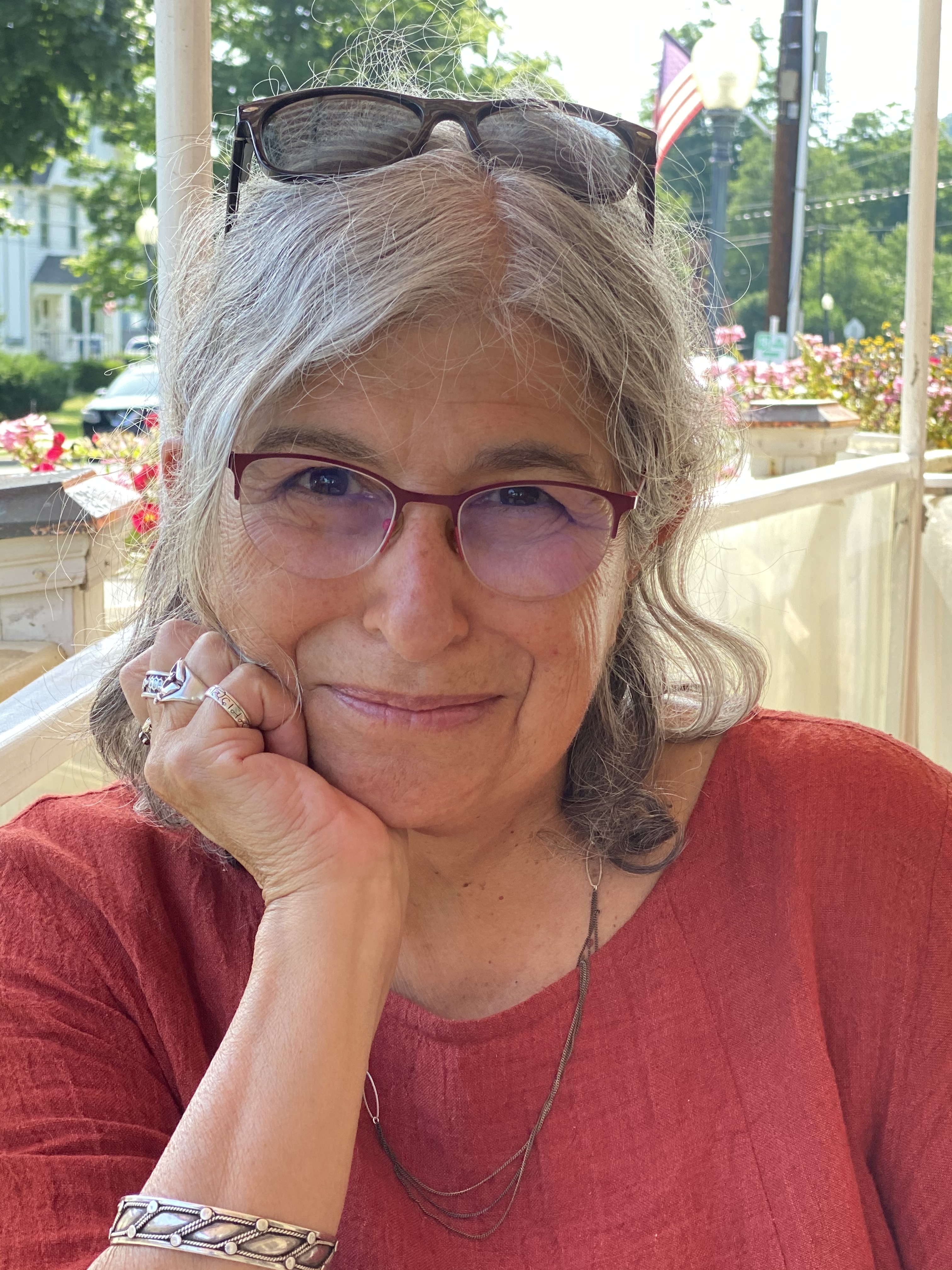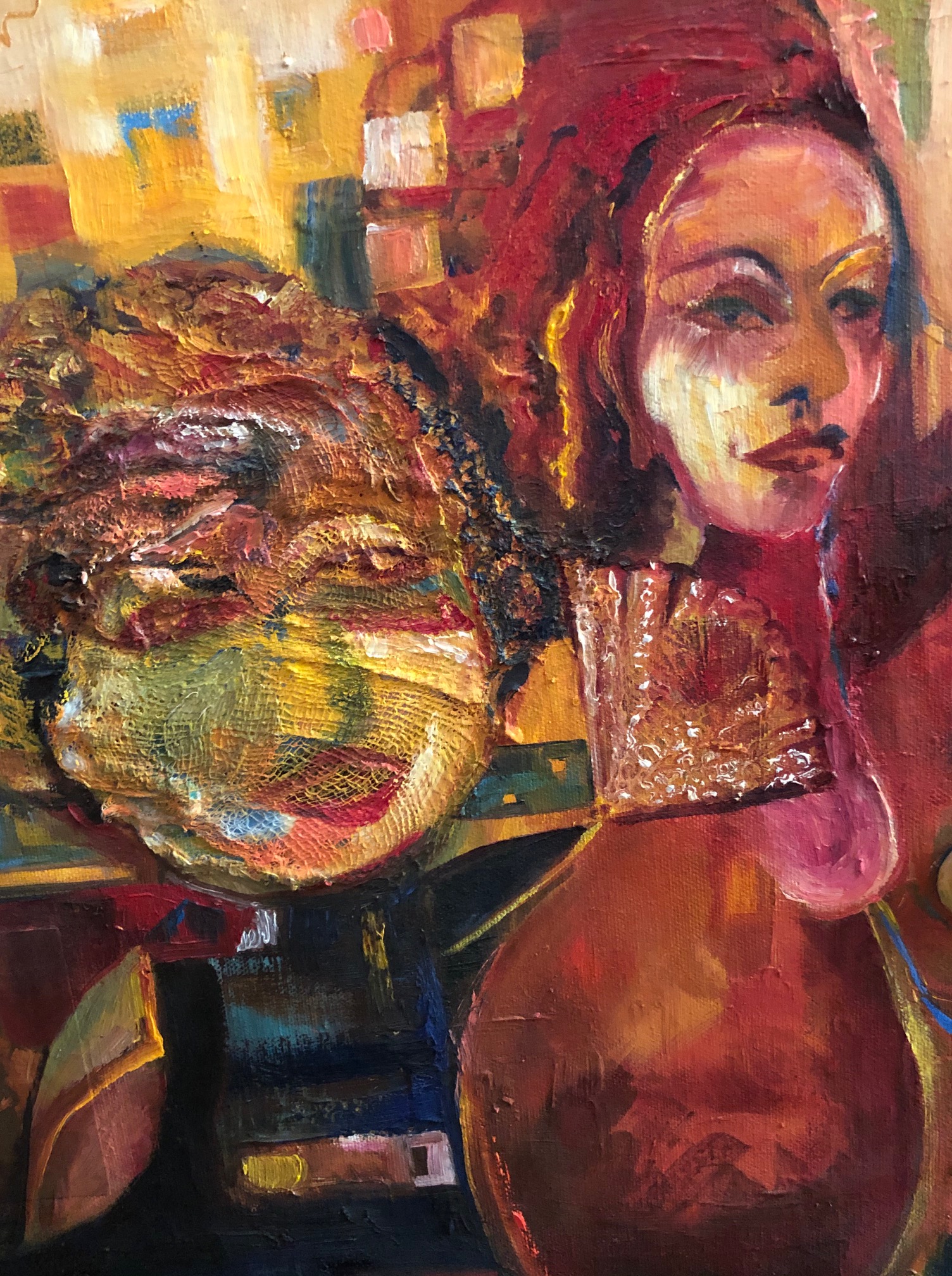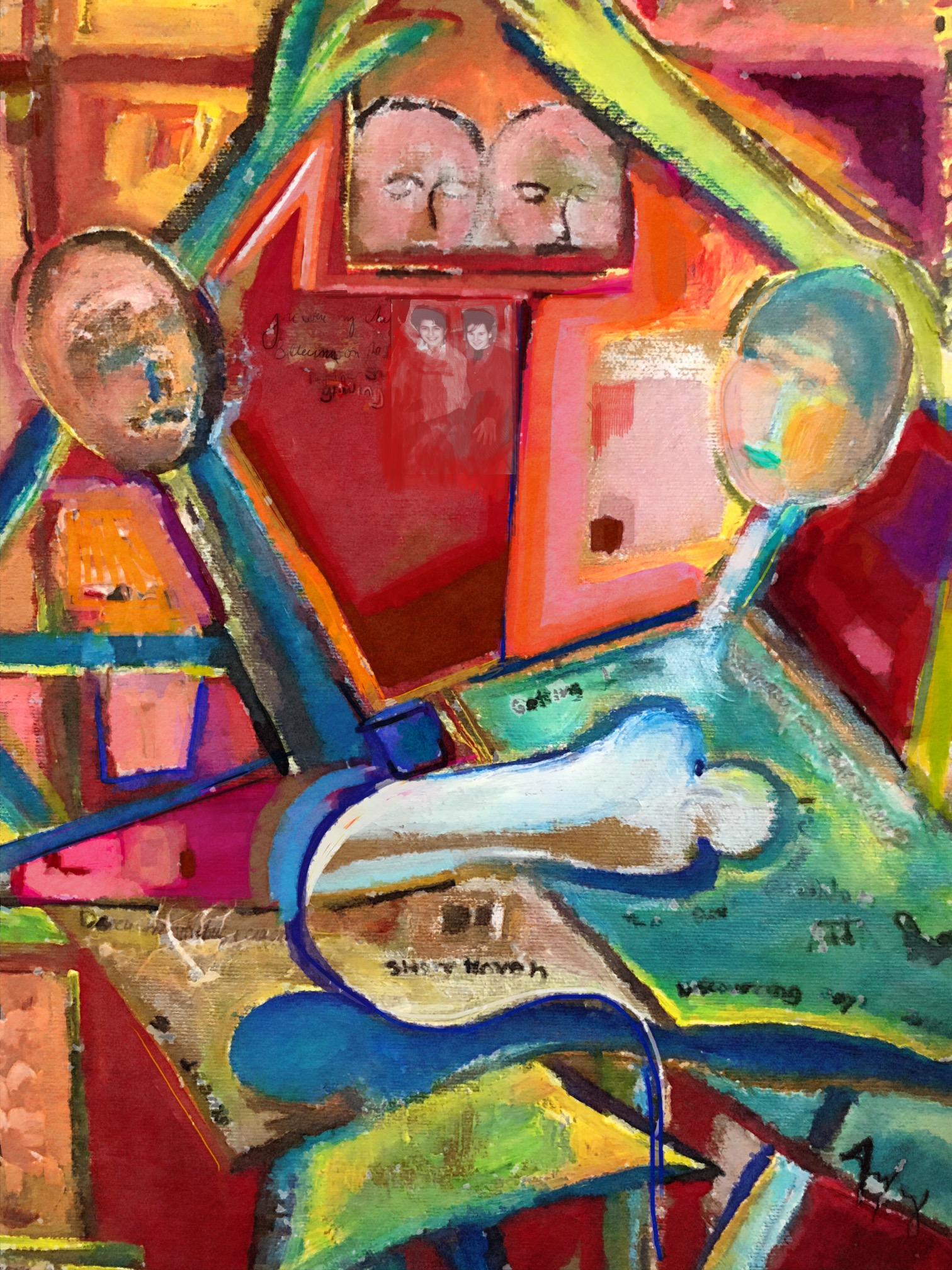
Make new friends, but keep the old;
Those are silver, these are gold.
New-made friendships, like new wine,
Age will mellow and refine.
Like so many others, I learned this little jingle, actually the opening of a lovely poem by Joseph Parry, during a brief stint in the Girl Scouts when I was nine or ten. I’m not sure I understood it then—what was wine, after all? what did it mean for it to “mellow and refine”?—but the words stayed with me, echoing unbidden through the years and shaping many of my choices.
I’m sure it was thanks to these words that, three years ago, I found myself dancing at the wedding of my childhood best friend. Deb lives in Southern California; I live in New York. Yet I never had the slightest hesitation about saying “yes,” I’d attend. This was to be her second marriage, after a painfully failed first. For years she’d sworn she would never remarry; the wonderful man she’d been living with for two decades finally persuaded her. Clearly, a moment to celebrate. And although we’d missed all the other milestones in each other’s lives, I knew I had to be there for this one.

I’ve known Deb since we were seven; we’re now both in our seventies. For nearly forty years we had no contact—different cities, different lifestyles, different choices. But when Deb sought me out after Hurricane Katrina (I’d been living in New Orleans and somehow she knew that); when she came to see me in New York and we revisited our childhood haunts; when she took to phoning me regularly on Jewish holidays—I was irresistibly drawn back into this relationship that linked me not only with her but with my own self over time. (“For ’mid old friends, tried and true / Once more we our youth renew.”)
I don’t know how we met or how we first became friends, though we were neighbors and classmates. Deb lived in the building across from ours, in a large middle-income housing project in Brooklyn. Her family was Ashkenazi Jewish, long settled in New York; ours was Sephardic, only recently arrived in the U.S. Her pristine apartment boasted gold wall-to-wall carpeting and a polished wood piano; ours was furnished with mismatched hand-me-downs. An only child, Deb had a TV in her bedroom; ours was in the living room, where my programs were closely monitored; I shared a bedroom with my brother and grandmother.
Yet despite our differences—or perhaps because of them—Deb and I found common ground, delighting in an ongoing, daily game. One of us would pretend to be handicapped—blind, or deaf, or unable to walk; the other would be her aide, helping the other as she made her way through a challenging world. Each story we enacted lasted weeks; then, one adventure over, we’d switch roles and invent new identities. Our fantasies were partly based on what we’d heard about Helen Keller and Annie Sullivan, but we went far beyond our models as we created tales that kept us inextricably bound.

In high school, we started to go our separate ways. By college, the separation was complete. Deb attended Brooklyn College, secured a good teaching job, and married young. I went to Harvard, where I promptly had a nervous breakdown and soon dropped out. The shame of that failure led me to withdraw from all my former friends. A few years later, a dangerously destructive affair with an older man plunged me into even deeper isolation. It was only after leaving that man when I was in my twenties—thanks largely to the nascent women’s movement—that I began consciously to cultivate friendships with women, creating a circle of stability that would see me through the next fifty years.
My first new friend was Laura, a woman who comforted me one day while I huddled in the bathroom of the publishing company where we both worked. (I’d just had an IUD inserted, and despite the clinic’s insistence that my pain was normal, it was in fact crippling.) Although I left New York soon after, I continued to spend time with Laura whenever I returned—going to museums, attending Broadway plays, just walking and talking. My other long-term friend is Judith, whom I also met when I was in my twenties, and with whom I remained in close touch despite the distances—staying with her whenever I came to New York, welcoming her visits to me in Philadelphia, Oklahoma, and New Orleans.

Now that I’m back in New York, I see Laura and Judith more regularly, meeting them individually, and also bringing them together, along with new friends and family members, for all the Jewish holidays. This past year, of course, we rarely gathered in person. But just the other day, post-vaccination, I saw each of them. In the afternoon I helped Laura get settled at home after a brief hospital stay, and in the evening I shared an outdoor dinner with Judith. I returned to my apartment that night feeling unusually fulfilled, unusually grounded and at peace . . . and I got to thinking about both the gold of these old friendships and the silver of my many deeply-valued new ones that grow older by the minute . . .

I got to thinking, too, about Deb, and the game we once played, helping each other, taking turns, assuming different roles—and I see now that we were preparing ourselves for a lifetime of shifting roles in all our intimate, enduring relationships. Now one, now the other is called on to help; now one, now the other is stronger or weaker. Sometimes, we’re both independent and free . . . sometimes we’re both dependent and confined. And I imagine too that, as we all age into our eighties and nineties, we’ll all be called on in different ways to stand by and support one another, to accompany each other as we move through this world and into the next. I’m ready, I believe, but only thanks to my friends.
Deb, it turns out, has become an accomplished artist, after a career spent as a special education teacher (a choice she attributes in part to our early role-plays); I’m making my way as a writer and translator (also an outgrowth of our early storytelling?). It delights us both now that her images and my words can appear side by side, complementing one another as they do here and in other columns we’ve recently worked on together.
As Joseph Parry put it so well:
Cherish friendship in our breast—
New is good, but old is best;
Make new friends, but keep the old;
Those are silver, these are gold.

Joyce Zonana is a writer and literary translator. Her most recent translation, Tobie Nathan’s A Land Like You, is available from Seagull Books. Her memoir, Dream Homes: From Cairo to Katrina, an Exile’s Journey was published by the Feminist Press. Joyce served for a time as co-Director of the Ariadne Institute for the Study of Myth and Ritual, and is a contributor to the Abbey of Hope’s Reflectionary, where her writing is accompanied by Deborah Saltz Amerling’s luminous artwork.


I think it’s good to have old friends, but, alas, two of my dearest friends died in the 1980s, both victims of cancers (stomach and lung). I have newer old friends now and cherish them. What would we do without our old friends, the ones who know our history and where we came from? I’m glad you and Deb are reunited. Yes, Best Friends Forever! Bright blessings to friends.
LikeLiked by 1 person
Thanks for your comment, Barbara. Yes, alas, the other side of closeness is the possibility of loss. Parry has a line about that in the original poem as well . . . “But old friends, alas! may die, /
New friends must their place supply.” Actually, no one every fills another’s place, but we find new relationships that become equally precious.
LikeLiked by 3 people
A beautiful post! I love that you are collaborating with Deb now – your words and her art make this post so lively and meaningful! Very much a metaphor for long-time friendships where we each bring something unique but there is a blending that makes for a bigger whole than the two parts. Thank you for sharing this relationship with us!
LikeLike
Thanks so much Carolyn. Yes, Deb and I are so lucky to be able to share our art in this way. It means a lot to both of us, and it’s wonderful to share it with others.
LikeLike
What a beautiful tribute to long-lasting friendship between women! As I get older, I find that I treasure the friends from my youth even more because they remember me as I once was – and I still see them as they once were in spite of the all the physical and mental signs of aging. When all is said and done, we still have each other. We are the warp and the weft of a woven tapestry of two lives lived.
LikeLiked by 1 person
Thanks so much for your comment, Diane. Yes, long-lasting friendship is a kind of antidote to aging. Or, rather, aging is what makes friendship even better!
LikeLiked by 1 person
Joyce, as always ,you find the right words to translate feelings we all have inside. This is a beautiful story that all of us can identify with in our own ways. Thank you for making our lives and friendships more beautiful with your words!
LikeLike
Oh Marie, thank you so much for your comment. I so appreciate hearing from you. I’m so glad my words find their way into people’s hearts! YOU continue to be an inspiration to me.
LikeLike
Joyce, this is a heartfelt story and your words are so touching as usual. It’s wonderful to have old friends who know about your history and family, etc. but it’s also refreshing to have new friends who know about your present time. It’s beautiful to have connected with your friend Deb and have enhanced your friendship through your words and her art work. Thank you.
LikeLike
Thank you Maryam! Yes, we need both old friends and new. So glad you’re one of my “newer” ones. :-)
LikeLike
Thanks Joyce. You too.
LikeLike
Wow, what a great tribute to the power of friendship! I have a close relationship with my mother which, I think, is why I’ve always been very female identified. I treasure my friends, especially the ones who have known me for a long time. Where would we be without our friends?!
LikeLike
Thanks for your comment Linda. Yes, we would be lost without our friends. And how lucky you are to have your mother as your close friend too!
LikeLike